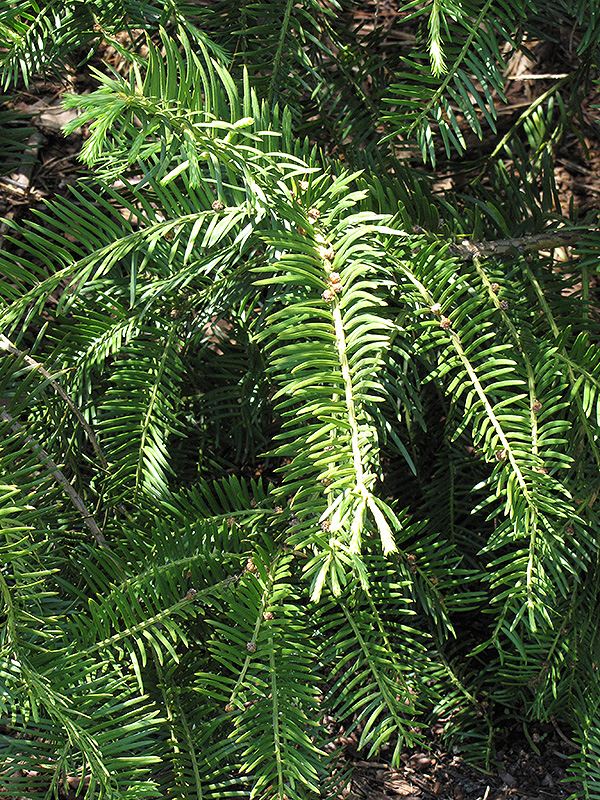>> Home
Height: 15 feet
Spread: 10 feet
Sunlight:
![]()
![]()
![]()
Hardiness Zone: 5
Other Names: Cow's Tail Pine
Description:
A very useful large landscape shrub that is very heat tolerant, more interesting than most junipers, will take more shade than almost any needled evergreen; tolerates severe pruning and makes a great hedge in a shady area; good for foundation planting
Ornamental Features
Japanese Plum Yew has attractive bluish-green evergreen foliage which emerges light green in spring on a plant with an upright spreading habit of growth. The needles are highly ornamental and remain bluish-green throughout the winter.
Landscape Attributes
Japanese Plum Yew is a multi-stemmed evergreen shrub with an upright spreading habit of growth. It lends an extremely fine and delicate texture to the landscape composition which can make it a great accent feature on this basis alone.
This is a relatively low maintenance shrub, and is best pruned in late winter once the threat of extreme cold has passed. Deer don't particularly care for this plant and will usually leave it alone in favor of tastier treats. It has no significant negative characteristics.
Japanese Plum Yew is recommended for the following landscape applications;
- Accent
- Mass Planting
- Hedges/Screening
- General Garden Use
Planting & Growing
Japanese Plum Yew will grow to be about 15 feet tall at maturity, with a spread of 10 feet. It has a low canopy with a typical clearance of 1 foot from the ground, and is suitable for planting under power lines. It grows at a slow rate, and under ideal conditions can be expected to live for 70 years or more.
This shrub performs well in both full sun and full shade. It does best in average to evenly moist conditions, but will not tolerate standing water. It may require supplemental watering during periods of drought or extended heat. It is not particular as to soil type or pH. It is highly tolerant of urban pollution and will even thrive in inner city environments. This species is not originally from North America.
